President Bola Ahmed Tinubu has declared a national security emergency, authorising an unprecedented expansion of Nigeria’s security manpower in response to the worsening wave of banditry, kidnapping, and terrorism across the country.
In a State House directive, the President empowered the police, army and intelligence services to embark on immediate, large-scale recruitment and redeployment aimed at reclaiming territory from criminal gangs and terror cells.
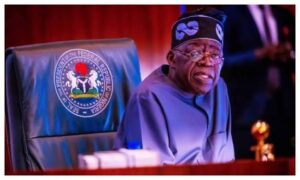
Under the new order, the Nigeria Police Force is to recruit an additional 20,000 officers, bringing the current intake to 50,000 personnel nationwide. To fast-track training, the police have been authorised to temporarily use National Youth Service Corps (NYSC) camps as training depots, complementing existing facilities. Officers withdrawn from VIP guard duties are to undergo accelerated retraining and be redeployed to high-risk communities and security flashpoints.

The Nigerian Army has also been directed to expand its fighting strength, while the Department of State Services (DSS) has presidential approval to immediately deploy all trained forest guards to flush out terrorists, bandits and kidnappers entrenched in forests and rural hideouts.
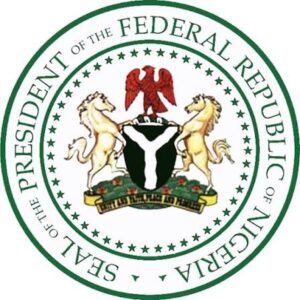
Security observers and civic groups say this is one of the most assertive security steps taken by any administration in recent years and reflects a government finally moving beyond rhetoric.
A Necessary but Incomplete Step: Call for Immediate Audit of the Army
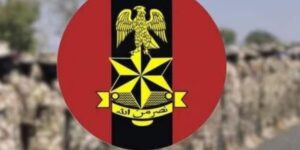
While welcoming the President’s declaration, security stakeholders insist that recruitment without internal cleansing will not deliver the desired results.
The National Patriots, whose earlier recommendations on tougher measures against terrorists and kidnappers were published by HeadlineNews.News, have renewed their call for an urgent, full-scale audit of the Nigerian Army.
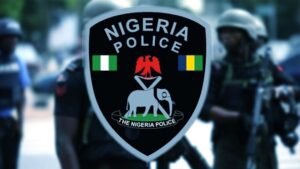
They argue that beyond fresh recruitment, the government must identify and weed out all questionable elements, including:
So-called “repentant” terrorists allegedly absorbed into security structures, whose loyalties and background remain deeply contentious in public opinion; and

Individuals who allegedly gained entry into the army through fraudulent state-of-origin and identity claims.
HeadlineNews.News investigations exclusively revealed instances where some soldiers reportedly originating from Kano, Kaduna, Katsina and Borno States allegedly obtained Lagos indigene certificates fraudulently and subsequently enlisted in the Nigerian Army as “Lagos indigenes” based on false declarations.

At the time, the National Patriots raised an alarm and formally disclosed the identities of some of the individuals involved to the relevant authorities. To date, there has been no transparent public update on whether these specific cases were investigated, sanctioned, or corrected.
Analysts warn that such breaches, if not decisively addressed, undermine the integrity of recruitment, distort federal character principles, compromise operational trust, and create dangerous loopholes that hostile actors can exploit from within the system.
For many Nigerians, a credible security overhaul must therefore include:

■ A forensic personnel audit of the army and related security agencies;
■ Verification of origin, credentials and background of all serving personnel;
■ Removal and prosecution of anyone found to have infiltrated the system via false declaration or with a compromised past.
Historical Context: Chronic Understaffing and Infiltration Concerns
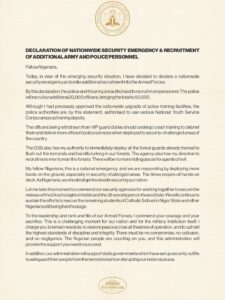
For over a decade, Nigeria has battled overlapping threats—Boko Haram/ISWAP insurgency, banditry, kidnapping-for-ransom, farmer–herder clashes and urban crime—often with inadequate manpower and weak internal controls.
Critics of past administrations point to two structural failures:

● Severe manpower gaps:
Fewer than 380,000 police officers serve a population of over 220 million, far below international benchmarks.
The army has been stretched thin, manning internal operations in virtually all geopolitical zones while still tasked with external defence.
● Internal contamination and poor vetting:
The controversial policy of “rehabilitation and reintegration” of so-called repentant terrorists without transparent public vetting has fuelled suspicions that some of these elements may have found their way into security formations.

Allegations of fraudulent state-of-origin claims and manipulated recruitment processes have long haunted the military and paramilitary services.
The combination of low numbers, poor vetting, and compromised entries has left the system vulnerable not just from outside attacks, but from within its own ranks.
Tinubu Is Finally Acting — But Must Go Further and Stay the Course

President Tinubu’s emergency measures are widely seen as a long-overdue response to a security situation that has spiraled beyond what ad-hoc operations and media statements can manage.
However, experts and civic groups stress that:
Recruitment must go hand-in-hand with ruthless internal cleansing.
The proposed expansion of forces must be matched with training, equipment, welfare, intelligence support and strict discipline.
Every allegation of infiltration, fake credentials, or compromised loyalty must be investigated transparently and corrected decisively.

For the first time in a long while, Nigerians are seeing signs of a listening government, one that appears ready to align with public demands for tougher, smarter, and more accountable security measures.
But the consensus is clear:
This is only the beginning.
The emergency declaration must not become another short-term political gesture.
It must be followed by sustained reforms, institutional audits, and a zero-tolerance policy for internal compromise.

As the National Patriots and other stakeholders have consistently warned, Nigeria cannot win the war against terrorists, bandits, and kidnappers if the security architecture itself is infiltrated or built on false foundations.
Tinubu has now taken a crucial step. The next will determine whether this moment becomes a genuine turning point—or just another missed opportunity.
Princess G. A. Adebajo-Fraser MFR.
The National Patriots.




